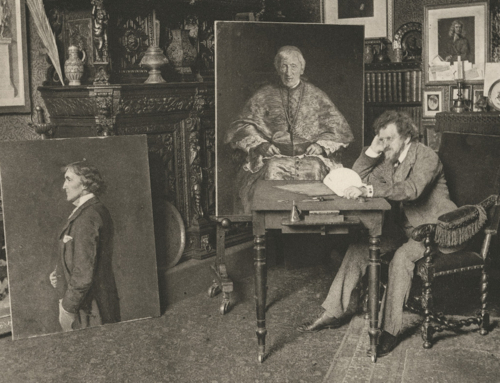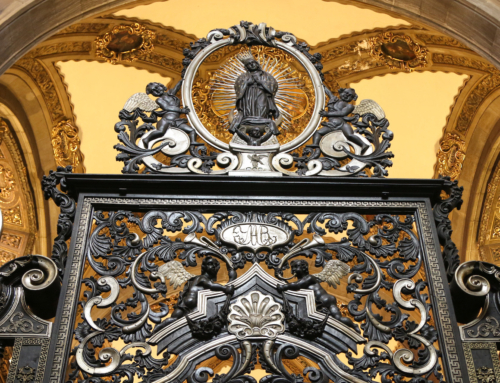People often criticize St. Thomas Aquinas for being “boring.” Today, on the feast of the Angelic Doctor, I offer this light-hearted reflection in his own idiom:
Whether Thomas Aquinas is fittingly called boring?
Objection 1: It would seem that Thomas Aquinas is fittingly called boring. The works of Thomas are composed of impersonal statements and arguments, which are boring. Now, every agent acts in accordance with its nature to produce something like unto itself (omne agens agit sibi simile). Just as nothing can effect heat unless it is hot, so too no one can produce boring writings, unless he is boring. Hence it is seen that since Thomas’ works are boring, Thomas is fittingly called boring.
Objection 2: Thomas Aquinas is well known to have been of considerable girth. A man possesses phlegmatic humor in proportion to his size. The more phlegmatic a man’s disposition, the more he is perceived as dull, wearisome, and uninteresting. Thus, as a result of his girth, Thomas is fittingly called boring.
Objection 3: Those who are always correct in all things are annoying. Those who are annoying are also boring. Thus, Thomas, who is typically correct on account of the soundness of his reasoning and the brilliance of his intellect, is fittingly called boring.
On the contrary, it is written (Job 7:1) “Is not life on earth a drudgery, its days like those of a hireling?” Hence it is on account of the burdens of this life that boredom comes.
I answer that, A thing may be called boring in two ways: in itself (per se) or accidentally (per accidens) on account of some accompanying factor. Thomas, considered in himself, is not boring. A man is only called boring who tries one’s patience excessively and to no great purpose. However, the works of Thomas are ordered towards producing knowledge and wisdom in the reader concerning the greatest realities, namely God and the things of God. As the Philosopher observes in the De Animalibus XI, the least knowledge of the highest realities produces the greatest joy. Whatever produces joy cannot fail to excite.
However, St. Thomas may be called boring accidentally with regard to the difficulty some of his readers experience. As the Philosopher observes in Physics I, we “start from the things which are more knowable to us and proceed towards those which are clearer and more knowable by nature.” Whatever is more knowable to us is bound up with the senses and is therefore more easily known and regarded as interesting and exciting. For example, we observe that children, whose capacity for speculation is less developed, learn more easily through stories than through syllogisms. In rising from the level of the senses to the level of intelligible truths, the mind experiences fatigue. This can induce boredom in the wisest of men but especially in those not habituated to abstract speculation. Thus, Thomas may be called boring but only accidentally with respect to the effect experienced by some of his readers.
Reply to Objection 1: Impersonal statements are necessary for the communication of abstract truths. A man who relies merely on stories and examples and who does not employ universal statements and syllogistic reasoning is limited in his ability to communicate the truth. For this reason, theology that remains at the level of literature may be exciting, but after a great period of time it will induce an even greater boredom than that which appeals to abstract reasoning.
Reply to Objection 2: The soul is of greater dignity than the body. For this reason, a man possessing a virtuous disposition of soul may overcome certain impediments posed by his own corpulent physique.
Reply to Objection 3: Those who are consistently correct are regarded as annoying principally by those who prefer the darkness of error. Thus is it is written that King Ahab detested the prophet Micaiah for his truthfulness (1 Kings 22:8): “I hate him because he prophesies not good but evil about me.” Thus, the real cause of annoyance and boredom is interior to the one who is bored and annoyed.
✠
Image: Francisco de Zurbaran, The Apotheosis of Saint Thomas Aquinas







